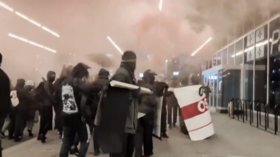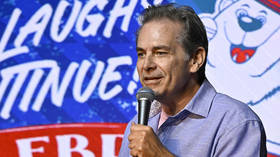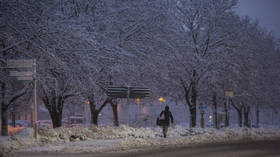Russian election - a touchstone for Putin’s policy
The election gave Russian voters a chance to express their feelings about the current political situation. With the success of the economy in recent years and rising living standards, many people don't want to see drastic changes.
Just days ago Garry Kasparov, former World chess Champion and leader of the Other Russia opposition party walked free from jail. He’d been imprisoned the weekend before for leading an illegal rally.
Images of his arrest and release made news around the world, but in Russia there was barely a ripple of attention. It’s illustrative of the general lack of political engagement that has badly affected the country’s opposition parties.
Russians are currently enjoying the longest period of economic stability and growth in living memory. Russian oil, gas, metal and, increasingly, brain power is in demand worldwide and prosperity has changed Moscow and other large cities beyond recognition.
Russians travel more, spend more on their children’s education and play around with capitalist toys such as mutual funds and the stock market.
With more disposable income than ever before, shopping malls attract far bigger crowds than any political rally, whether pro- or anti-government.
It means most Russians seem happy to leave things just the way they are, perhaps unsurprisingly given the country’s previous political upheavals.
It’s an election strategy the ruling pro-Kremlin party United Russia, or Putin’s party as they like to call themselves, has played on relentlessly.
The opposition disagrees. Both the communists on the left and market capitalists on the right say their voices are not heard and opinions not taken into account.
They say the government controls television and other broadcast media and uses it as a propaganda tool to promote its agenda.
However the pro-Kremlin parties say this is not true, pointing out the numerous newspapers and internet sites and even television channels that criticise Putin and his policies.
Even though Putin is stepping down from the Presidency in March, he has claimed that a resounding election victory will give him a moral right to continue his political influence and ensure the country stays with his agenda over the coming years.
He left little to chance appealing directly to the Russian people to come out and vote in Sunday’s elections.
This vote is widely seen as a referendum on his eight years in power and as ballots continue to be counted, the President is learning just how successful his country feels he has been.












